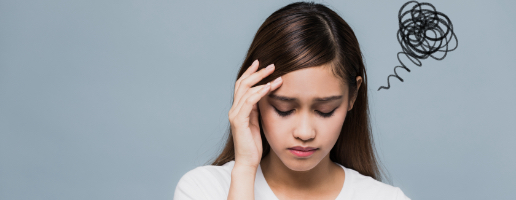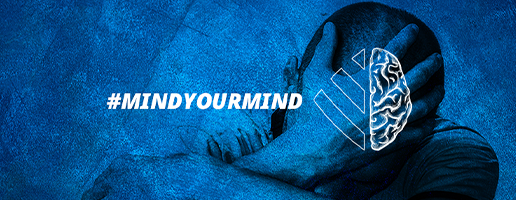How do we reverse the pandemic's impact on mental health?

Sunday, 10 October marks global Mental Health Awareness Day. Sponsored by the World Health Organization (WHO), it is a yearly campaign to raise awareness of mental health as a whole, to respond to mental distress and mental illness, and to support mental wellbeing.
The last 20 months have worsened existing mental health issues for some
Chairperson of The South African Association of Social Workers in Private Practice (SAASWIPP), Dr Nelia Drenth, says: "An estimated 400 million people worldwide suffer from mental or neurological disorders or from psychosocial problems. Mental health is not solely about mental illness. It's more about the holistic care of mental wellbeing and understanding what needs to be in place for an individual to be able to navigate the challenges of life."
Mental health is about so much more than just brain function. It is defined by the WHO as "a state of wellbeing in which the individual realises his or her own abilities, can cope with the normal stresses of life, can work productively and fruitfully, and is able to make a contribution to his or her community."
The ongoing global COVID-19 pandemic has heightened both the awareness and recognition of the importance and, at times, fragility of mental health. "The last 20 months have definitely worsened existing mental health issues for some while also causing additional mental pressures and challenges for many," continues Dr Drenth.
"Isolation and social distancing may impact the potential for complicated grief"
In her 2008 thesis, Complicated grief in the South African context - a therapeutic intervention programme, Dr Drenth detailed that generally, approximately 10% to 15% of grieving individuals are expected to suffer from complicated grief. However, during 2020 and 2021 - with the world in the grip of a global pandemic - complicated grief has become a far more prevalent condition.
Complicated grief is loosely defined as "chronic" or "prolonged grief" that overwhelms the person experiencing it, making it almost impossible for them to return to their normal daily routine for a prolonged period, up to a few years. Dr Drenth says: "The physical, mental and social consequences of isolation and social distancing may impact the potential for complicated grief."
This is just one example of the impact of the last 18 months on mental health. There's also much already written and documented around the impact of COVID-19 on the mental health of the family unit, women, teenagers and young children, frontline and healthcare workers.
"The pandemic has led most of us to be increasingly mindful of the importance of being more attuned to our emotional and psychological health," says Dr Drenth. "However, the need to focus on mental health has and always will be there. Addressing mental health concerns is key to addressing the health of humanity as a whole on an ongoing basis."
Sheila Selfe, clinical social worker and member of SAASWIPP, agrees. In a recent article focused on Suicide Prevention Day, Selfe stressed that while helplines may currently be experiencing a surge in calls, suicide is most definitely not only linked to times of world crisis. "It is an ongoing cause of death with many factors playing a role. When one looks deeper into the situation of someone who has ended their life by suicide, one often finds that there is more than one element driving their mental illness."
Mental illness is much more common that we think
Mental health disorders and mental illness can manifest in debilitating conditions, reducing the sufferer's capacity to lead a productive and joyful life. Dr Drenth stresses that mental illness is much more common that we think. Sally Baker, social worker and member of SAASWIPP, agrees that "mental illness can affect anyone at any time, but can be successfully treated."
Often an ideal treatment plan involves a broad range of strategies that can include a combination of treatments and help from a variety of professionals and importantly, change for the person struggling.
She adds: "As social workers, we are able to assist people to identify the problem and challenges and help with a treatment plan. This could be as simple as introducing exercise, healthier eating habits and kinder, healthier, self-talk for some people. Identifying and coping with emotions, trauma therapy, grief counselling, increasing effective family and community support are also beneficial for people struggling with a mental illness."
There is no shame in reaching out for mental health support
"Now more than ever, as we navigate the continued pandemic and, with time, move into a post pandemic era, a continued heightened awareness of the importance of mental health needs to be encouraged," urges Dr Drenth.
With many options available, she also encourages the importance of finding the right professional and treatment plan: "From social workers through to psychologists and psychiatrists and support groups (both online and face to face), there is an ever-increasing network of support and intervention resources. "It is so important for individuals to engage with the option most suitable to them and what they are experiencing."
"And it is really important to reach out," continues Dr Drenth. "There is no shame in this. We reach out to medical professionals, educators, physical fitness instructors and many other similar professionals countless times without too much hesitancy. When it comes to taking care of our mental health, our actions should be no different. As a society, we need to consciously strive to reach that place of greater acceptance and non-judgement of selves and others, especially when it comes to finding support for mental illness and promoting mental healthcare."
- Learn more about the Mental Health Care Programme and access support here.
Biographies
Dr Nelia Drenth
Dr Nelia Drenth is a social worker in private practice where she keeps up with social work interventions, specifically in the field of crisis, illness, loss and bereavement. She regularly presents workshops on palliative care and bereavement and gives bi-monthly lectures at Denmar Psychiatric Hospital.
Sheila Selfe
Sheila Selfe is a clinical social worker (B. Soc. Sc (SW) Hons in Psychiatric Social Work (UCT)) based in Muizenberg in the Southern Suburbs of Cape Town. She has many years' experience in the mental health profession and specialises in providing help and support to adults and older adolescents.
Sally Baker
Sally Baker is a registered social worker and a member of The South African Association for Social Workers in Private Practice (SAASWIPP). She has a private practice that focuses on trauma and the perinatal phase. She is a childbirth educator, counsellor, mentor, trainer and facilitator.
1. South African Government (2020). Mental Health Awareness Month 2020.
2. H. G. Prigerson. Complicated Grief: When the Path of Adjustment Leads to a Dead-End. Bereavement Care, Vol. 23, No. 3, 2004, pp. 38-40. doi:10.1080/02682620408657612.
Related articles

Mental Health Awareness is vital year-round
This July is Mental Illness Awareness Month. As the theme suggests, the month is about creating awareness around mental wellness to help save lives and break the stigma around mental illness.

Discovery Health's support for mental illness to grow in 2021 (Listen: 3 podcasts for you)
Experiencing excess stress and uncertainty can lead to us developing symptoms of mental illness. When these symptoms persist, and they begin to affect our functioning, we may require support to regain our mental wellbeing.

Your allies in mental wellbeing
Thinking about the future can be intimidating for many, and now more than ever, thanks to the ever-present threat of COVID-19. When planning for the future, mental health should be a priority. Try this mental health toolkit for starters.